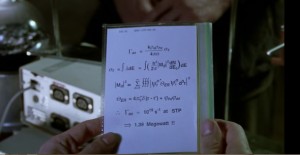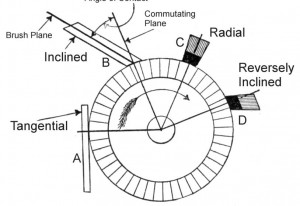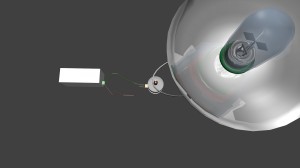The idea of virtue as a quality relating to a high moral standard leads to an incomplete understanding of virtue. In a society that values wealth, productivity, fashion, intellect, power and beauty, one might avoid concepts such as virtue. Why take a detour away from what one desires?
This article will discuss in detail not only how virtue can be a more direct route to one’s desires…but also that virtue is a self-evolving engine that creates value at every turn.
Have you ever had a car tire or bicycle tire that was extremely low on air, but not quite flat or exploded just yet? You may have noticed that the vehicle was not quite as responsive as it used to be. Or perhaps the same amount of gas from a full tank didn’t seem to yield very many miles.
Sometimes slow degradation of a tire over a long period of time is too gradual to notice. We may need an alert light on the dashboard to remind us that there is a problem. Or maybe a friend or colleague might remind us of our situation by saying, “Your passenger side rear tire seems really low.” We step around the vehicle, often surprised or perhaps uncomfortable at the idea of something being out of alignment, and the truth is there. The tire is either low or it isn’t.
For sake of argument, let’s say that the tire actually is low. One recognizes the tire is low, and then it is either filled with air, patched and refilled, or perhaps replaced entirely. Yet the real experience doesn’t occur until the vehicle is used again. There is a distinct feeling of, “This (bicycle / car) is handling better.” This feeling is difficult to pin down and explain, yet it is always there.
Virtues are similar to the set of tires. At first they can be tools and equipment to help someone have a safe ride to where they need to go. Yet if the tires are properly aligned, adjusted, of high quality and proper treads…the drive itself becomes nothing short of pleasurable.
But there must be a starting point.
With all the distractions, gadgetry and toys of modern civilized life, something seems to have entirely no value. This something gets pushed aside by “instant checkouts” and belittled by “next day shipping” it is of course…patience, the simplest and most easily attainable of virtues.
Patience requires absolutely zero effort or energy. It asks absolutely nothing of anyone or anything. Young children have difficulty with patience not due to vice or flaw, but due to their insatiable appetite for life itself. Yet as adults, we seem to appreciate moments of respite, relaxation and serenity. From appreciation of silence and stillness, patience begins to do its work.
Let’s take a most mundane of examples for our modern lives…”Next-Day rush shipping” vs. “Free Shipping.” There is always a cost. If one can wait the extra few days for their item, he or she will not have to pay anything for the shipping process. On the other hand, if one is in a hurry, shelling out a few extra dollars may be of little cost or consequence.
Now let’s go a bit further. What does that savings represent? It’s just money of course. But for sake of this thought experiment, money can be a simple and effective way to discuss value, and energy either potential or put into motion.
Continue with patience. What is it bringing forth? Patience at a stoplight saves one from a potential accident. Holding a door for another person changes the social environment on a subconscious level. Eventually if one holds patience close, it will bear fruit. That simple fruit is strangely enough…more time.
It may seem contradictory for a virtue which emphasizes the release of concern for time to actually generate time, but it definitely does function so.
Yes, there are twenty-four hours in a day. And that never does seem to change. But our perception of time is more similar to the allegory of the watched pot than a simple clock. A watched pot never boils. What an amazing little sentence.
If patience is able to compound over several weeks, months or years. One will find a few extra moments per day. These moments are available for allocation. They can be used for anything. One can use these extra perceived moments for maintenance of home, organization of thoughts, pleasant conversation with friends, grinding away at a task, or perhaps rest. Yet being able to recognize these moments becomes synonymous with the feeling one gets from a set of properly aligned and filled tires. We have a better handle on things, the day seems manageable, life becomes less of a grind and more of a scaffolding…waiting for the day when the superstructure is finally complete.
At this point, one’s personality comes into serious play. More time…what to do with it? A studious person can take this time and become more intellectually disciplined. This can branch off into more subtle and refined abilities of the mind such as but not limited to: critical discernment, pattern recognition and memorization capability. But the process by which these abilities were gained required something. It was energy. And energy, although abundant everywhere, isn’t always easily acquired.
Eventually, the mind begins to see that energy is needed to do the work one needs to do:
“I want to study more, but I’m just too tired.”
“A few more repetitions of this exercise would get me where I want to be…but I just can’t”
“This needs to get done, but I’m about to collapse..I should rest.”
One who has patience will recognize this. Yet there is a fine line between pushing someone or one’s self to test or expand limitations. If one is impatient, critical mistakes can be made. A blown out shoulder can put an athlete months off track from an important event, a brain embolism caused by stress can negate years of cognitive expansion by damaging valuable nerve cells.
When we understand that energy is needed to do work, yet are patient enough to wait for that energy instead of forcing action…a new virtue emerges. This virtue is vigor, it comes from the food we eat, and the air we breathe. It is the wind, the sound, the light and the cool darkness within ourselves. A small amount of vigor can help us fight the force of gravity in the morning and wake up to perform our daily routines. A moderate amount of vigor allows us to be creative in art or at work and achieve our goals. The food in our meals has taste and is appreciated, the water and beverages are refreshing. One is existing with purpose, because we know our energy has value.
The recognition that achieving goals requires planning and decisions on both momentary, daily and long-term scales all at the same time can be daunting. So a vigorous person is challenged by time constraints and energy requirements. He or she already is seeing life as less of a burden and more of an adventure. Now the vigor is burning hotter, yet patience controls and shapes this fire. Eating too much food can be exhausting in of itself. It can extinguish the furnace of life that puts spring into each step. Not eating enough can cause one to become overly sensitive and push him or her to break under the strong wind instead of bend. There is no single solution, it requires a conscious, semi-conscious and subconscious mind that all trust each other.
Over time, this vigor becomes systematized. The self knows exactly what it needs to avoid pain, what foods it enjoys to replenish and regenerate, a routine emerges and new opportunities present themselves. The process by which power and energy is formed, channeled, and utilized becomes self-scientific. An alchemy of mind and body appears that is inexpiable and absurd when discussed with others. What works for one may be absolutely life-threatening and detrimental to another. At this point one has a distinct urge to share personal findings with others and “help” others with their “lackings.” Yet another virtue appears out of no where. This virtue is so important and crucial that it often goes unnoticed. It is the bells on the hat of the jester, it is the nod of respect to the stranger, it is the sincere smile instead of a suggestion to the disheartened. It is humility…a virtue without measure.
If vigor is the coals of the furnace, then humility is the hinged door that allows that heat to continue growing without burning the home of the smithy. No coals will roll out upon the worktable, no sparks will fly onto the tapestries of the mind. True humility is the ability to understand that if perfection of self had truly been attained, then the world would be different. If someone had unlimited energy of body or mind, the troubles of the world could have been alleviated with a great lifting. Yet this has not occurred, not because virtue does not exist, but because the process is often cut short by vice, desire to control others, strange circumstances or perhaps even unfair intervention. Regardless of intent or purpose, one this always remains the same. No matter how hard one pushes to complete the system, that very system will push back by either changing, contracting, expanding or reallocation. This does not mean one should give up in the quest for virtue, application of purpose and achievement of goals. Rather, it is a signpost to endeavor with a smile, and concede the fact that the most worthy of challenges will take more than a single lifetime to complete…no matter how long that lifetime may be.
The acceptance of the futility of action and yet refutation of sloth at every turn creates one of the most coveted virtues…call it haste, call it celeritas. Would your cape need a windy afternoon to be full? Enough patterns have been observed. Enough meals, enough restful nights. Why wait for a threshold when a wall can be scaled in half the time?
Patience has been mastered to such an extent that movement has become meditation. If one needs to get from one place to another. Then go there. If one can get there at any time realistically in the future with a humble probability of survival, can it be counted upon? Or perhaps was the destination too lofty? Yet if it is possible, then we can close the ground quickly. Haste is a mixture of vigor and intent, using humility as a way to maintain self-propulsion. And celeritas is haste combined with patience and forgiveness. The resources and technology of today is forgiven for its lack of perfection, for the self is not complete either. Instead of stopping, one with the virtue of celeritas decides to move forward and create solutions where there was disappointment and dread. Even failure is viewed as an integral part of the scientific process rather than a barrier.
Eventually, the resources required to achieve goals becomes so minimal that abundance becomes the new normal. Like-minded friends seem to be more valuable than gems or gold. What could truly be achieved if…
The moon speaks to the trees. “Are there birds and small creatures scurrying about at this late hour?”
A tree replies, “What of it?”
The moon laughs and says, “They seem to be enjoying themselves. I only wish I could help.”
The moved a long branch and pointed to a nearby pond. “You already are, old friend.”
-Tyler



